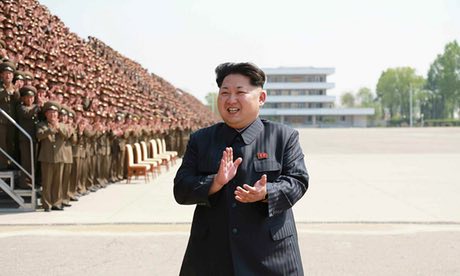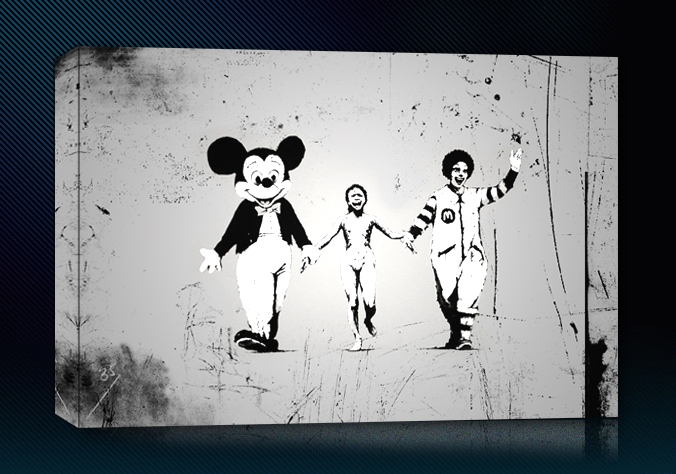As the dissolute dotard and the porcine airport poisoner play a game of nuclear chicken with our hides, it’s clear that going forward there’s no positive military option and several truly awful ones. While both blustery parties may have begun this war as one of of words, matters have now escalated past the danger point. Trump and Kim both regard themselves so highly that you would think that their own greedy self-preservation would safeguard the rest of us, but neither leader seems particularly grounded in reality. You don’t behave the way they do if survival if your first impulse.
Christopher Hitchens dubbed North Korea a “nation of racist dwarfs” in 2010, which doesn’t exactly tell the whole picture. It’s a sick society, no doubt, the body diseased from the head down, but one that clearly possesses advanced technological acumen despite its isolation, poverty and want. The late provocateur summed up the populace this way: “Starving and stunted dwarves, living in the dark, kept in perpetual ignorance and fear, brainwashed into the hatred of others, regimented and coerced and inculcated with a death cult.” That may be how things appear to an outsider, especially a serial sensationalist like Hitchens, but I doubt those living beneath a brutal authoritarian regime are truly expressing how they feel. Nuance, that great mitigator, was lacking in Hitchens’ article and it has been in the dialogue spit between Trump and Kim. Its absence could get millions killed.
Two excerpts follow.
_______________________
A few Reddit AMA exchanges about North Korea from ABC’s Bob Woodruff, who’s made eight trips to the isolated country:
Question:
As someone who has been to the country frequently, what do you think the greatest misconception of North Korea is?
Bob Woodruff:
I would have to say that in the country’s capital of Pyongyang they seem to be westernized in many ways. Of course there are many soldiers walking around in their uniforms but for the others they now have american looking clothes and shoes. They now have cell phones although they cannot extend outside the city. What we really don’t see are the countrysides and the prison camps. So I don’t know what our misconceptions would be there.
_______________________
Question:
With all the rhetoric flying around, mixed with the stories of almost cartoonish absurdity from the regime all the time, what would you say is the biggest/most common misconception that the average Westerner has about North Korea and the Kim regime these days?
Bob Woodruff:
Their intelligence. The people in the elite class are extremely educated. That is especially with technology. They have developed nuclear bombs, rockets, engines etc faster than ever predicted.
_______________________
Question:
Is the average North Korean citizen aware of the propaganda they are being fed and just choose to stay silent for their own well being or do they seem to genuinely believe it?
Bob Woodruff:
I think that they believed it more than now. in the doc you can see that i have been going there for more than 12 years and back then i really felt that they consider the leaders god like. Since then more have studied overseas. More importantly there are radio connections along the borders with both China and South Korea. More social media. Cell phones and conversations with family member who worked in China. Better every year.
_______________________
Question:
Aside from the U.S.A, what do north Koreans think about other countries?
Bob Woodruff:
Depends on their history etc. They have just a few allies but even they are starting to dislike NK under the leadership of Kim Jong Un. China is their number one friend but it is starting to lose its faith. Nuclear bombs and tests are frightening even to China. As you could see in our “Inconvenient Border” doc we got out yesterday, China is no longer so connected to NK because of Kim Jong Un. He has never been to China and vice versa for Xi Jingping. Their other strong historical ally is Russia. But they essentially ended their military and economic support of NK in the mid-90s. That led to starvation and mass death in NK so that relationship has descended.•
· · ·
From Ariel Dorfman’s New York Review of Books piece “Nuclear Apocalypse Now?“:
Debating whether Hiroshima was a war crime is, at this moment, anything but an academic exercise. America’s presumed innocence is not benign. It allows an ignorant and bellicose president to open the door not just to the Kim regime’s destruction, but to a possible act of collective suicide on a global scale. If Trump nukes North Korea, what will China do? And Russia?
In 1888, the philosopher Frederick Nietzsche predicted the coming of “wars the like of which have never been seen on earth before.” It seems unlikely that Trump was recalling Ecce Homo when he echoed Nietzsche’s phrase with his promise of “fire and fury like the world has never seen,” but he should consider the warning of Albert Einstein, four years after the bombing of Hiroshima and Nagasaki: “I know not with what weapons World War III will be fought, but World War IV will be fought with sticks and stones.”
If this president is seriously considering the first nuclear attack in more than seven decades of uneasy atomic peace, it won’t matter this time whether we call it a war crime. It would be an apocalypse that might leave no one to claim they were innocent.•


